
The American Institute of Aeronautics and Astronautics (AIAA) is a professional society for the field of aerospace engineering. The AIAA is the U.S. representative on the International Astronautical Federation and the International Council of the Aeronautical Sciences. In 2015, it had more than 30,000 members among aerospace professionals worldwide.

Gregory Errol Chamitoff is a Canadian-born American engineer and former NASA astronaut. He has been to space twice, spending 6 months aboard the ISS across Expedition 17 and 18 in 2008, and another 15 days as part of STS-134 in 2011. STS-134 was the last of Space Shuttle Endeavour which delivered the Alpha Magnetic Spectrometer and completed the US Orbital Segment.
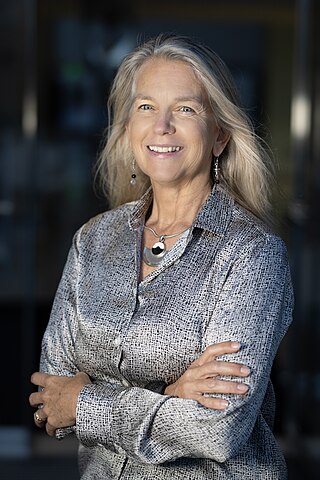
Dava J. Newman is an American aerospace engineer. She is the director of the MIT Media Lab and a former deputy administrator of NASA. Newman is the Apollo Program Professor of Aeronautics and Astronautics and Engineering Systems at the Massachusetts Institute of Technology. She has been a faculty member in the department of Aeronautics and Astronautics and MIT's School of Engineering since 1993.

Guy Antony Jameson, FRS, FREng is Professor in the Department of Aerospace Engineering at Texas A&M University. Jameson is known for his pioneering work in the field of computational fluid dynamics. He has published more than 300 scientific papers in a wide range of areas including computational fluid dynamics, aerodynamics, and control theory.
Satya Atluri was an Indian-American engineer, educator, researcher and scientist in aerospace engineering, mechanical engineering and computational sciences, who was a Distinguished Professor Emeritus of Aerospace Engineering at the University of California, Irvine.
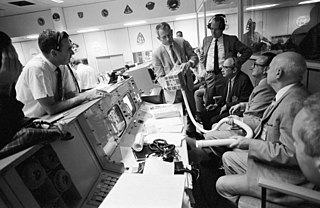
Aerospace engineering is the primary field of engineering concerned with the development of aircraft and spacecraft. It has two major and overlapping branches: aeronautical engineering and astronautical engineering. Avionics engineering is similar, but deals with the electronics side of aerospace engineering.
Charbel Farhat is the Vivian Church Hoff Professor of Aircraft Structures in the School of Engineering at Stanford University, where from 2008 to 2023, he chaired the Department of Aeronautics and Astronautics. From 2022 to 2023, he chaired this department as the inaugural James and Anna Marie Spilker Chair of Aeronautics and Astronautics. He is also Professor in the Institute for Computational and Mathematical Engineering, and Director of the Stanford-King Abdulaziz City for Science and Technology Center of Excellence for Aeronautics and Astronautics. From 2017 to 2023, he served on the Space Technology Industry-Government-University Roundtable; from 2015 to 2019, he served on the United States Air Force Scientific Advisory Board (SAB); from 2008 to 2018, he served on the United States Bureau of Industry and Security's Emerging Technology and Research Advisory Committee (ETRAC) at the United States Department of Commerce; and from 2007 to 2018, he served as the Director of the Army High Performance Computing Research Center at Stanford University. He was designated by the US Navy recruiters as a Primary Key-Influencer and flew with the Blue Angels during Fleet Week 2014.
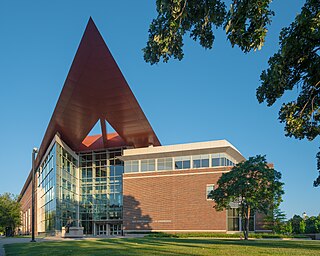
The Purdue University School of Aeronautics and Astronautics is Purdue University's school of aerospace engineering contained within the Purdue University College of Engineering. The school offers B.S., M.S., and Ph.D. degrees in aeronautical and astronautical engineering. It also provides distance graduate education, including an online M.S. in Engineering with concentration in Aeronautics and Astronautics, and a distance Ph.D. Its main office and some of its labs are located in the Neil Armstrong Hall of Engineering. As of 2010, the School has awarded an estimated 6% of BS degrees and 7% of PhDs in aerospace engineering in the United States.
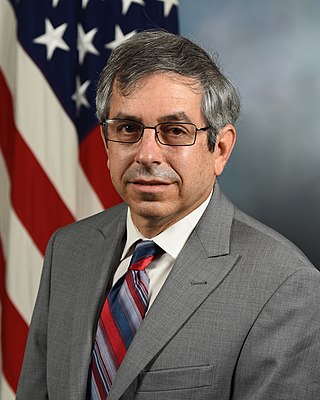
Ulfila Mark J. Lewis is a senior American aerospace and defense executive with special expertise in hypersonics. He is currently the Executive Director of the National Defense Industrial Association's Emerging Technologies Institute, following his role in the second half of 2020 as the acting US Deputy Under Secretary of Defense for Research and Engineering, and before that the Director of Defense Research and Engineering for Modernization. He was the Chief Scientist of the U.S. Air Force, Washington, D.C. from 2004 to 2008 and was the longest-serving Chief Scientist in Air Force history. He served as chief scientific adviser to the Chief of Staff and Secretary of the Air Force, and provided assessments on a wide range of scientific and technical issues affecting the Air Force mission. In this role he identified and analyzed technical issues and brought them to attention of Air Force leaders, and interacted with other Air Staff principals, operational commanders, combatant commands, acquisition, and science & technology communities to address cross-organizational technical issues and solutions. His primary areas of focus included energy, sustainment, long-range strike technologies, advanced propulsion systems, and workforce development.
John L. Junkins is an American academic and a distinguished professor of aerospace engineering in the College of Engineering at Texas A&M University specializing in spacecraft navigation, guidance, dynamics, and control. He holds the Royce E. Wisenbaker Endowed Chair at Texas A&M University and also serves as the Founding Director of the Hagler Institute for Advanced Study at Texas A&M University, since its founding in December 2010. On November 24, 2020, Junkins was announced as the interim President of Texas A&M University starting January 2021. He was the interim president until May 31, 2021.
Richard "Dick" Horace Battin was an American engineer, applied mathematician and educator who led the design of the Apollo guidance computer during the Apollo missions during the 1960s.
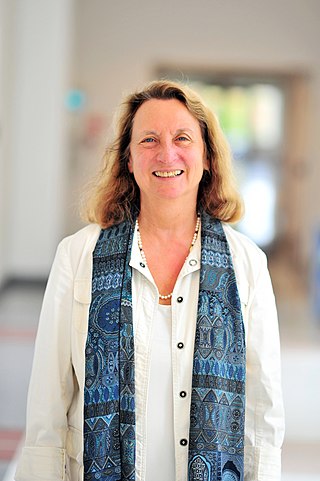
Elaine Surick Oran is an American physical scientist and is considered a world authority on numerical methods for large-scale simulation of physical systems. She has pioneered computational technology to solve complex reactive flow problems, unifying concepts from science, mathematics, engineering, and computer science in a new methodology. An incredibly diverse range of phenomena can be modeled and better understood using her techniques for numerical simulation of fluid flows, ranging from the tightly grouped movements of fish in Earth's oceans to the explosions of far-flung supernovae in space. Her work has contributed significantly to the advancement of the engineering profession.

George Em Karniadakis is a professor of applied mathematics at Brown University. He is a Greek-American researcher who is known for his wide-spectrum work on high-dimensional stochastic modeling and multiscale simulations of physical and biological systems, and is a pioneer of spectral/hp-element methods for fluids in complex geometries, general polynomial chaos for uncertainty quantification, and the Sturm-Liouville theory for partial differential equations and fractional calculus.

Joseph Majdalani is a Lebanese-American professor of Mechanical and Aerospace Engineering. He began his career at Marquette University, before serving as both the Jack D. Whitfield Professor of High Speed Flows and Arnold Chair of Excellence at the University of Tennessee Space Institute. He then served as the Auburn Alumni Engineering Council Endowed Professor and Chair, and is currently the Hugh and Loeda Francis Chair of Excellence in Aerospace Engineering at Auburn University.

Moriba Kemessia Jah CorrFRSE is an American space scientist and aerospace engineer who describes himself as a "space environmentalist", specializing in orbit determination and prediction, especially as related to space situational awareness and space traffic monitoring. He is currently an associate professor of Aerospace Engineering and Engineering Mechanics at the University of Texas at Austin. Moriba Kemessia Jah has authored a number of academic papers, including "Entropy-based approach for uncertainty propagation of nonlinear dynamical systems". Jah previously worked as a spacecraft navigator at the NASA Jet Propulsion Laboratory, where he was a navigator for the Mars Global Surveyor, Mars Odyssey, Mars Express, Mars Exploration Rover, and the Mars Reconnaissance Orbiter. He is a Fellow of the American Astronautical Society, the Air Force Research Laboratory, the International Association for the Advancement of Space Safety and, the Royal Astronomical Society. Jah was also selected into the 10th anniversary class of TED Fellows and was named a MacArthur Fellow in 2022. He also was selected into the AIAA class of Fellows and Honorary Fellows in the year of the 50th Anniversary of Apollo 11. The AIAA "confers the distinction of Fellow upon individuals in recognition of their notable and valuable contributions to the arts, sciences or technology of aeronautics and astronautics."
Achille Messac is the Dean of the College of Engineering, Architecture and Computer Sciences at Howard University. He has previously served as Professor of Aerospace Engineering Mississippi State University. He was elected a Fellow of the American Association for the Advancement of Science in 2019.

Penina Axelrad is an American aerospace engineer known for her research on satellite orbital dynamics and the Global Positioning System. She is Joseph T. Negler Professor in the Colorado Center for Astrodynamics Research and the Ann and H.J. Smead Aerospace Engineering Sciences department at the University of Colorado.
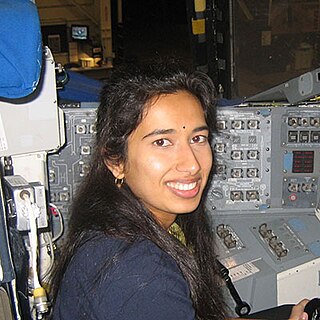
Swati Mohan is an Indian-American aerospace engineer and was the Guidance and Controls Operations Lead on the NASA Mars 2020 mission.
Victoria Lynn Coverstone is a retired American aerospace engineer, the former chair of the Department of Mechanical and Aerospace Engineering at the University of Miami, and a professor emerita at the University of Illinois Urbana-Champaign. Her research interests include spacecraft attitude control and trajectory optimization.
Hanspeter Schaub is a Swiss aerospace engineer.













